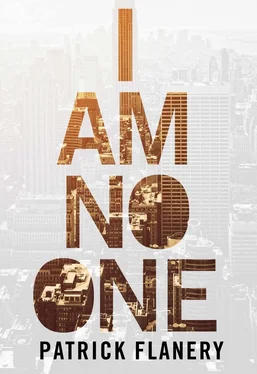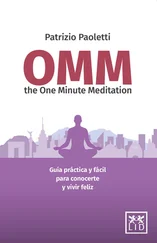Was it possible, I wondered, feeling the rhythm of the train and looking at my mother reading her issue of The New Yorker , cackling at the cartoons, that Stephen Jahn was sent to find me in Oxford? I had assumed his presence in College pre-dated my arrival and that in my first year he had merely been absent, but I did not know this for certain, I never had a conversation about Stephen with any of the other Fellows. There was a sense in which he was never fully present in the life of the College, as though, if I had not known him and spoken to him and been befriended by him (however menacingly), his presence would not have been noticed by anyone else.
From the station in Rhinecliff my mother and I took a taxi to her house, where I had left my car the last time I was upstate, some weeks earlier, so she could use it if needed. In fact she now rarely drives, being close enough to the center of Rhinebeck that she can walk to see her friends or get groceries at the natural foods store she loves, only driving if she needs to see her doctor or one of her more distant acquaintances in Hyde Park, but I feel more secure knowing the car is not sitting in the garage of my empty house outside of town, down a quiet road and set back on the property, a tall hedge hiding the house itself, so it would be easy for a thief to get inside without being seen from the road and take whatever he found there. I had resolved that I was going to have an alarm system installed in the new year, and perhaps also a series of internal motion-activated surveillance cameras as Peter had recommended, which would allow me to monitor the house from Manhattan and, he claimed, receive a notification if the cameras were triggered to record. ‘They’ll even email you the video they’ve taken, so you can see if it’s nothing at all, or if there’s an intruder walking through your living room.’ It sounded like science fiction, but Peter insisted the technology was cheap, although there were some concerns about privacy, given that the email service meant the video would be sent through a third party and there were no guarantees, none that mattered at any rate, that ‘some asswipe in Bloomington isn’t looking at a live feed of your living room whenever he feels like it.’
My mother and I agreed to meet for lunch on Saturday. Though my preference would have been for a weekend to myself with no social commitments, my mother was still reveling in the novelty of my return. On Sunday I would drop off my car in the late afternoon and walk to the station, or if the weather turned out to be bad she would drive me. That Friday, she showed me the changes she had made since my last visit, although the house looked the same as it had for years, in good order if more cluttered, filled with calendars and greeting cards and tchotchkes given to her by friends and neighbors, and while her style was not my own it was gratifying to know she lived with a sense of community, people looking out for her, noticing if she failed to bring in the mail or newspaper, if her lights were on late at night or her curtains not open in the morning, stopping by to ask if she needed anything from the store or offering to take her to lunch. She lived within the eye of the town, at the center of its social life, very near its geographic center, and in its constant vision. I could return to Manhattan believing my mother would be fine because she was not ignored or forgotten.
On the way to my house I stopped at the grocery store on Route 9 to get a few odds and ends so that, apart from seeing my mother for lunch the next day, I could spend a stretch of hours reading and perhaps also thinking about my recent past, about Stephen Jahn and Fadia and Saif and the way that trio of people had come to dominate my world.
The house, off a long rural road north of town, sits on a plot of land surrounded by small farms. My closest neighbor is more than half a mile away and the road itself is little but a paved farm track, wide enough for one vehicle, so it often feels more remote and removed from the world than it is.
I unloaded the groceries into the mudroom and was relieved to find the house in good order. Watching the garage door go down and the gray afternoon light give way to the white glow of lamps, I felt calm again after the events of the week, and relieved to know I could retreat to this kind of space away from the city, from students and colleagues, even away from Meredith and Peter, for this felt like the locus of some future retirement, a sample of what my own old age would be like, though unlike my mother I could not imagine placing myself at the center of any community.
Whatever may happen in my own case, now more uncertain than ever, it has always seemed to me that elderly women are more likely to be looked after by friends and neighbors than elderly men, who are perhaps by nature more disposed to retreat into themselves, less adept at reaching out for support. Perhaps people assume men are better able to see to their needs, a symptom of an old sexism that does as little for us as it ultimately does for women, men being thought capable and thus ignorable and so declining more rapidly, women thought incapable and thus in need of a cossetting that assumes only one way of growing old correctly, although one might well think that women, in the end, get the better deal out of such assumptions. Or perhaps this is not true, perhaps people assume the opposite, that men cannot begin to know how to care for themselves domestically while women, as they age, are assumed to live lives focused around the domestic, ruling an arena over which they have long been masters (or mistresses), and therefore can be left to themselves. In truth, too many old women and men are forgotten and ignored and prejudices one way or another do much to hurt both. Perhaps a little watching in such cases is no bad thing.
For now I am happy to be alone and ignored, perhaps even forgotten, although I know Meredith does not forget me, and I am not elderly, only in my fifties, in perhaps the September of my life, or if we are to believe the predictions for our own longevity, even the early July. It is comforting to think I still might have half a life more to live, another five decades to set right what I sometimes got spectacularly wrong, in particular where it comes to my relationships with women, and not just Susan and Meredith, and to a lesser extent my mother, but with Fadia, about whom I feel a profound and troubling sense of failure, of having not only failed her but having actively done wrong, quite regardless of the complex circumstances. Even where matters were not straightforward I know it is possible I might have done better than I did.
There are times now — sitting in this apartment on Houston Street, unsure how long I may yet come and go with a sense of freedom — when I wonder if I have already slipped past the boundary of life, and if this current situation might be, for the historian, the academic, the pursuer of other people’s stories in the archive of recent history, the only version of purgatory I could have earned, an accounting of my failures, recorded in anticipation of an audience about whose character, identity, composition and purpose I can but speculate: the authorities, my heirs, some future historians concerned with the ways this nation has contorted its gaze back on itself.
I spent that Friday afternoon, the last one in November, installed in my warm living room, gazing out at the lawn and the garden to which I did very little this year, promising myself that in April or May, when the ground has thawed, I will hire someone to make a garden requiring minimal maintenance and little watering, a garden that can be left to grow regardless of the seasons and immune to my oblivious eye, and between those spells of watching the garden disappear into shadow and my own reflection grow more distinct in the windows through which I was looking, turning on lights so I would not be in the dark, I read, flipping between my former colleague Timothy Garton Ash’s memoir The File and Simon Menner’s Top Secret , which chilled me with its polaroid images of the homes of people who had been subject to surveillance. At the end of Menner’s book a series of photos shows the head of the Stasi’s Phone Surveillance Unit in his gray suit going down on one knee, tapped on the shoulder with the blade of a sword, and bestowed with an ornamental pendant featuring a red telephone receiver. The honors of surveillance, the spy’s secret accolade. Would my own watchers be so garlanded?
Читать дальше












